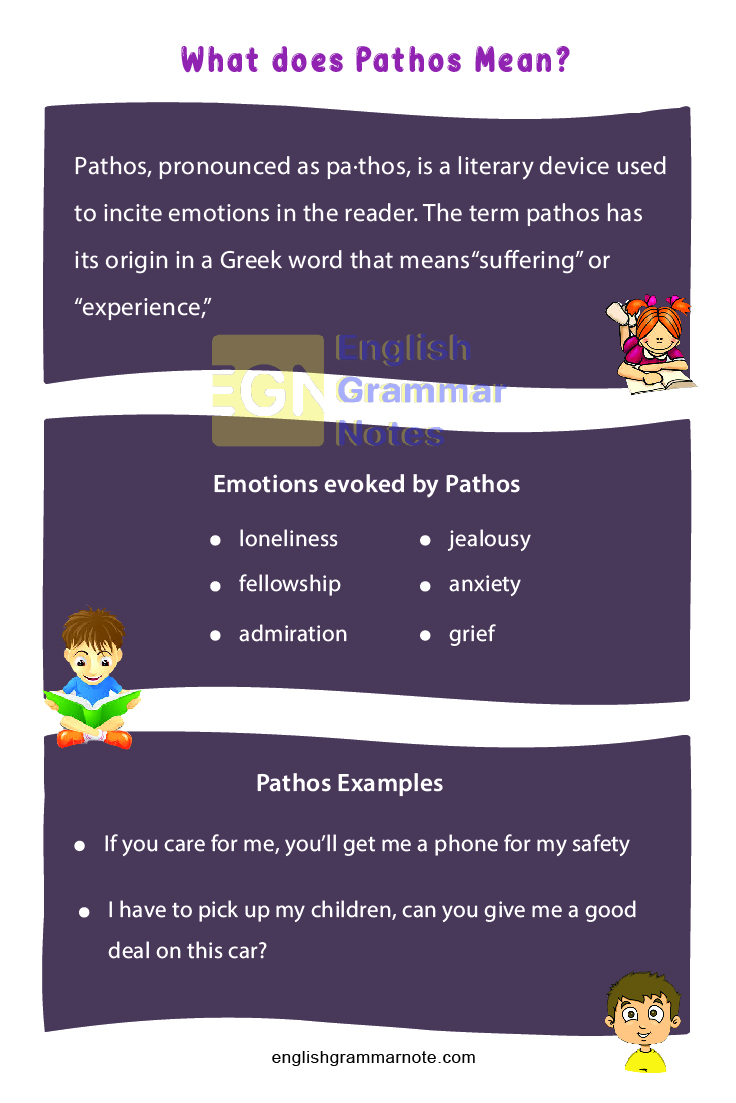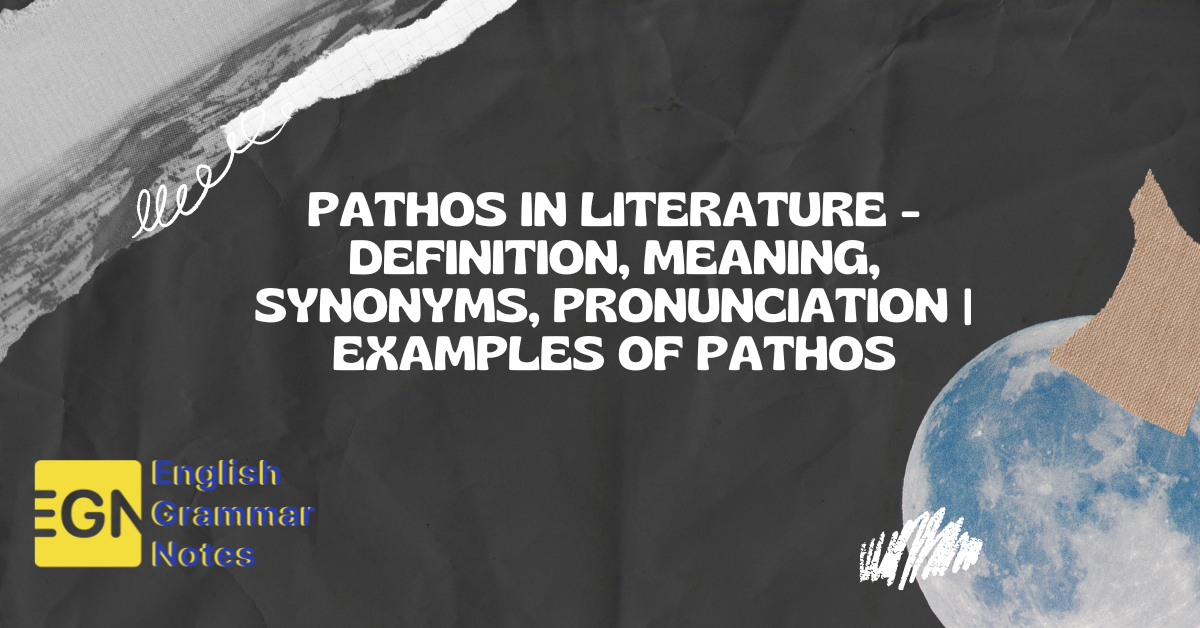Pathos, as an appeal to an audience’s emotions, is a valuable device in literature as well as rhetoric and other forms of writing. The literary device was used frequently by the Greek philosopher, Aristotle. In this article, you will be introduced to all the essential information about pathos including its definition, examples, its significance, characteristics, synonyms, etc.
- What does Pathos Mean?
- Emotions evoked by Pathos
- Pathos Examples
- Pathos, Logos Ethos
- How to Use Pathos?
- Fallacious Pathos
- 3 Important Characteristics of Pathos
- Pathos Synonyms
- What is Pathos?
- What are some synonyms of pathos?
- What are the characteristics of pathos?
- What is fallacious pathos?
What does Pathos Mean?
Pathos, pronounced as pa·thos, is a literary device used to incite emotions in the reader. The term pathos has its origin in a Greek word that means“suffering” or “experience,” The use of pathos stirs people’s emotions and is effective in turning their attention towards the speaker. This happens because the emotions and passion aroused can be compelling, even though it may defy your sense of logic or reason.
Emotions evoked by Pathos
Given below are some of the common emotions evoked by the use of pathos in literature:
- loneliness
- fellowship
- anxiety
- trust
- pity
- awe
- joy
- love
- passion
- sadness
- anger
- jealousy
- grief
- admiration
- excitement
Pathos Examples
Given below are a few example sentences that make use of Pathos:
- The war has done more damage to the entire nation than any other such event.
- If you care for me, you’ll get me a phone for my safety.
- I have to pick up my children, can you give me a good deal on this car?
- If you let me have ice cream every day, it proves that you love me.
See More:
Pathos, Logos Ethos
The ancient Greek philosopher, Aristotle introduced three forms of rhetoric, which results in effective speaking and writing. These are pathos, logos, and ethos.
- Logos appeal to logic. It involves a methodical and rational approach to rhetoric. Logos are devoid of pathos or emotions. However, when pathos is added to logos the argument becomes more effective.
- Ethos appeal to ethics. As a writer, you should have knowledge regarding the subject. Ethos is useful in building trust with an audience.
- Pathos: Pathos is used to incite emotions in the reader.

How to Use Pathos?
Keep these points in mind whenever you intend to make use of pathos.
- Focus on the touching aspect of an event.
- Understand how audiences or readers respond to the gravity of the situation.
- First, try using pathos with the ethos and then add pathos to logos.
Fallacious Pathos
The overuse of pathos is highly damaging. The readers will not directly be concerned with the tragedy, and hence they get bored with excessive emotions and will eventually lose interest. At this point, pathos becomes a fallacy. Hence make sure to avoid fallacious pathos.
Here is the Guide to English Grammar Notes & Study Material for grammar concepts that aid students ranging from beginner to advanced level to score well.
3 Important Characteristics of Pathos
An appropriate pathos will have the following three features:
- Relevant to the target audience.
- Pathos should be used to achieve a specific purpose.
- Pathos should never be overused.
Pathos Synonyms
Pathos has few synonyms but these words have their own distinct meanings. Synonyms include sorrowfulness, lugubrious, poignant, tragedy, sadness, pitifulness, piteousness, and poignancy.
FAQs on Pathos
Pathos is a literary device used to incite emotions in the reader.
2. What are some synonyms of pathos?
Synonyms of pathos include sorrowfulness, lugubrious, poignant, tragedy, sadness, pitifulness, piteousness, and poignancy.
3. What are the characteristics of pathos?
A pathos should always be relevant, should have a specific purpose, and should never be overused.
The overuse of pathos is known as fallacious pathos. When pathos is overused, readers will find it boring to fail to connect with the speaker or writer.
Conclusion
Emotions play an important role in literature. Pathos is an appropriate device that can be used to evoke emotions. The use of pathos will enhance the emotional appeal. Understanding what pathos is and its functions will surely help you to grab the attention of readers. However be sure not to engage in the overuse of pathos, as this will lead the readers to lose interest.
